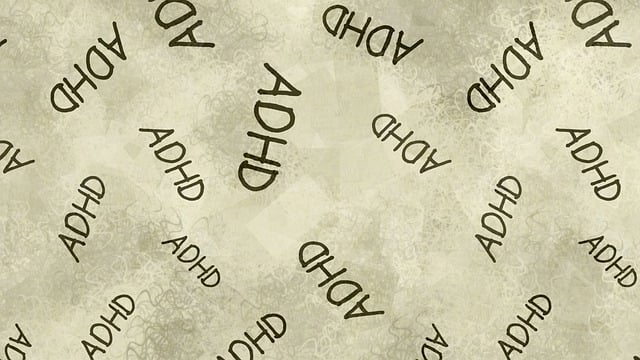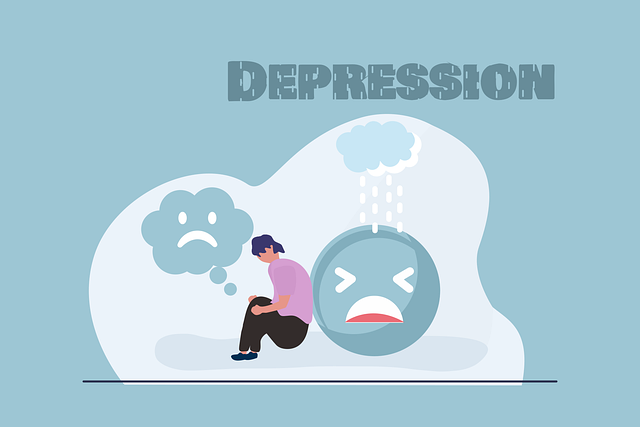Colorado Springs German Speaking Therapy offers specialized services catering to the unique needs of German-speaking individuals, utilizing Mind Over Matter principles and cultural competency training for inclusive therapeutic environments. Evaluation methods include both quantitative (standardized questionnaires) and qualitative (interviews, focus groups) techniques to assess changes in anxiety, depression, stress, and well-being over time, with long-term follow-ups crucial for positive outcomes. Client feedback is prioritized, highlighting areas for improvement and effective practices, revolutionizing mental health evaluation through a mixed-methods approach that combines objective data with subjective narratives. Continuous program assessments drive improvements, aligning with goals like Public Awareness Campaigns and Risk Management Planning, fostering emotional regulation and resilience in the region.
In Colorado Springs, German-speaking therapy settings have increasingly implemented mental wellness programs, aiming to improve client outcomes. This article explores comprehensive evaluation methods for these programs. We delve into both quantitative and qualitative approaches, including metrics for assessing effectiveness, client feedback techniques, and mixed-methods integration. Additionally, it highlights the significance of continuous improvement strategies based on evaluation findings, fostering enhanced mental wellness support within German-speaking communities in Colorado Springs.
- Understanding Mental Wellness Programs in Colorado Springs German-Speaking Therapy Settings
- Assessing Program Effectiveness: Quantitative Methods and Metrics
- Qualitative Evaluation Techniques for Client Feedback and Insights
- Mixed-Methods Approaches: Combining Quantitative and Qualitative Data
- Continuous Improvement: Using Evaluation Findings to Enhance Programs
Understanding Mental Wellness Programs in Colorado Springs German-Speaking Therapy Settings

Colorado Springs German-speaking therapy settings offer a unique and specialized approach to mental wellness programs tailored to the specific needs and cultural backgrounds of individuals who speak German as their primary language. These therapeutic environments recognize the importance of addressing emotional healing processes within a cultural context that resonates with clients. By incorporating Mind Over Matter principles, therapists foster an inclusive space where German-speaking individuals can openly discuss their challenges and work towards personal growth.
The implementation of Healthcare Provider Cultural Competency Training is vital in these settings to ensure effective treatment. Therapists receive specialized training to understand the nuances of cultural differences, enabling them to adapt their practices and communication styles accordingly. This training promotes a deeper connection between therapists and clients, allowing for more meaningful interactions and successful outcomes, specifically catering to the German-speaking community in Colorado Springs.
Assessing Program Effectiveness: Quantitative Methods and Metrics

Evaluating the effectiveness of a mental wellness program is a crucial step in ensuring its success and impact on participants’ lives. Quantitative methods offer a structured approach to measuring the outcome, especially when considering programs like German-speaking therapy in Colorado Springs that cater to specific communities. Researchers can employ various tools to assess change and progress over time.
One common metric is the use of standardized questionnaires and surveys to gauge improvements in mental health symptoms. These instruments often include scaled measurements for anxiety, depression, stress, and overall well-being. For instance, programs focused on conflict resolution techniques or community outreach initiatives can collect pre- and post-program data to quantify participants’ growth. Additionally, long-term follow-up assessments enable researchers to determine the sustainability of changes in a program’s aftermath, which is essential for depression prevention strategies.
Qualitative Evaluation Techniques for Client Feedback and Insights

At Colorado Springs German Speaking Therapy, we recognize that gathering client feedback and insights is a vital component in evaluating our mental wellness programs. Qualitative evaluation techniques offer a deep dive into the experiences, perceptions, and emotions of individuals participating in these programs. Methods such as individual interviews, focus groups, and survey questionnaires allow clients to express their thoughts freely, providing rich data for analysis. This client-centered approach not only identifies areas of improvement but also reinforces effective practices that enhance overall mental wellness.
Through these qualitative methods, mental health professionals can gain valuable insights into the impact of our programs on clients’ lives. By encouraging open communication and listening actively to their voices, we ensure that our services remain aligned with the evolving needs of our community. This personalized evaluation process is a game-changer in fostering meaningful change, as it goes beyond numerical data to capture the nuances of mental wellness journeys, much like unraveling a complex symphony rather than simply measuring its decibels.
Mixed-Methods Approaches: Combining Quantitative and Qualitative Data

In the realm of mental wellness program evaluations, Mixed-Methods Approaches offer a comprehensive strategy by integrating both quantitative and qualitative data. This synergistic method allows for a deeper understanding of participants’ experiences and outcomes. For instance, at Colorado Springs German Speaking Therapy, researchers might employ surveys to collect quantitative data on stress reduction levels before and after the program, while also conducting in-depth interviews to gather qualitative insights into individuals’ journeys.
By combining these two perspectives, the evaluation can unveil nuanced information about the program’s effectiveness. Quantitative data provides measurable trends, indicating significant reductions in stress levels, whereas qualitative data offers rich stories of participants’ transformations through compassion cultivation practices and self-care practices. This dual-approach ensures a holistic view, enabling the therapy center to refine its programs based on both objective metrics and subjective experiences.
Continuous Improvement: Using Evaluation Findings to Enhance Programs

Evaluation is not a one-time event but an integral part of continuous improvement in any program, including mental wellness initiatives. At Colorado Springs German Speaking Therapy, we understand that gathering and acting upon feedback creates a positive cycle of enhancement. Each assessment provides valuable insights into what’s working well and where adjustments are needed. By implementing these findings, we can optimize our services, ensuring they remain effective and relevant to the community’s evolving needs.
This approach aligns with broader strategies like Public Awareness Campaigns Development and Risk Management Planning for Mental Health Professionals. By fostering emotional regulation through such continuous improvement methods, Colorado Springs German Speaking Therapy not only benefits individual clients but also contributes to a more resilient and supportive mental health landscape in the region.
The evaluation of mental wellness programs in Colorado Springs German-speaking therapy settings is a multifaceted process that combines both quantitative and qualitative methods. By assessing program effectiveness using metrics like client satisfaction, symptom reduction, and retention rates, professionals can gain valuable insights into the strengths and weaknesses of these initiatives. Qualitative techniques, such as interviews and focus groups, offer deeper understanding through client feedback and experiences. Integrating these approaches with mixed-methods analysis allows for a comprehensive evaluation that informs continuous improvement, ensuring optimal support for individuals seeking mental wellness in this unique therapeutic environment.














